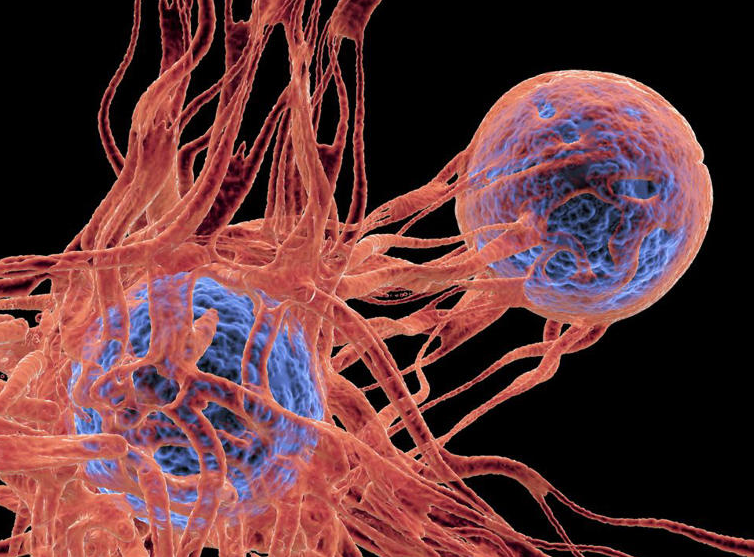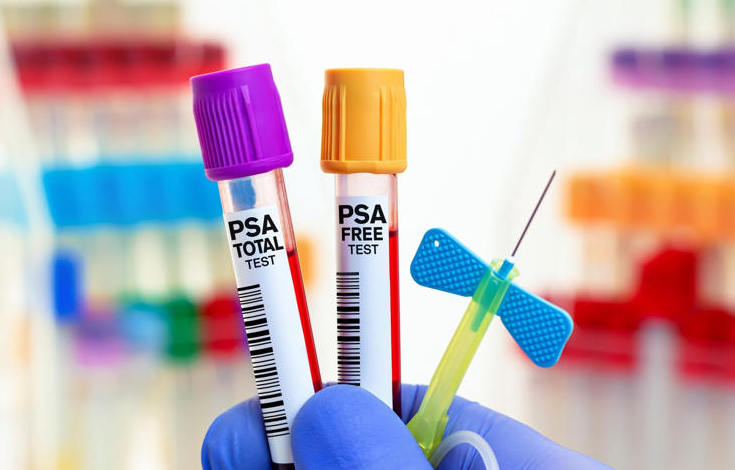 A new surgical approach has shown significant results in eliminating prostate tumours, as reported by BBC News.
A pan-European trial involving 47 hospitals showed almost half of the 413 men treated had no cancer remaining following the treatment. The technique involves use of a drug made from deep-sea bacteria, which become toxic when exposed to light. The drug is used in combination with a set of fibre optic lasers inserted into the prostate gland. When turned on, these lasers cause the drug to activate and kill the cancer, while leaving the healthy prostate cancer cells.
49% of men involved in the trial went into complete remission, with only 6% of patients needing to have their prostate removed subsequently (compared with 30% of patient who did not have the new therapy). Given the side effects of conventional prostate cancer treatments can include urinary incontinence and erectile dysfunction, new treatments which reduce these issues are highly sought. As reported by the BBC, the “impact on sexual activity and urination lasted no more than three months” after this treatment.
The treatment is not yet available to patients widely, but will be assessed by regulators at the start of 2017. If you would like more information on this treatment, or on prostate cancer more generally, please see sources such as Prostate Cancer UK. There is also more information available on our webpage here.
A new surgical approach has shown significant results in eliminating prostate tumours, as reported by BBC News.
A pan-European trial involving 47 hospitals showed almost half of the 413 men treated had no cancer remaining following the treatment. The technique involves use of a drug made from deep-sea bacteria, which become toxic when exposed to light. The drug is used in combination with a set of fibre optic lasers inserted into the prostate gland. When turned on, these lasers cause the drug to activate and kill the cancer, while leaving the healthy prostate cancer cells.
49% of men involved in the trial went into complete remission, with only 6% of patients needing to have their prostate removed subsequently (compared with 30% of patient who did not have the new therapy). Given the side effects of conventional prostate cancer treatments can include urinary incontinence and erectile dysfunction, new treatments which reduce these issues are highly sought. As reported by the BBC, the “impact on sexual activity and urination lasted no more than three months” after this treatment.
The treatment is not yet available to patients widely, but will be assessed by regulators at the start of 2017. If you would like more information on this treatment, or on prostate cancer more generally, please see sources such as Prostate Cancer UK. There is also more information available on our webpage here.
 A new surgical approach has shown significant results in eliminating prostate tumours, as reported by BBC News.
A pan-European trial involving 47 hospitals showed almost half of the 413 men treated had no cancer remaining following the treatment. The technique involves use of a drug made from deep-sea bacteria, which become toxic when exposed to light. The drug is used in combination with a set of fibre optic lasers inserted into the prostate gland. When turned on, these lasers cause the drug to activate and kill the cancer, while leaving the healthy prostate cancer cells.
49% of men involved in the trial went into complete remission, with only 6% of patients needing to have their prostate removed subsequently (compared with 30% of patient who did not have the new therapy). Given the side effects of conventional prostate cancer treatments can include urinary incontinence and erectile dysfunction, new treatments which reduce these issues are highly sought. As reported by the BBC, the “impact on sexual activity and urination lasted no more than three months” after this treatment.
The treatment is not yet available to patients widely, but will be assessed by regulators at the start of 2017. If you would like more information on this treatment, or on prostate cancer more generally, please see sources such as Prostate Cancer UK. There is also more information available on our webpage here.
A new surgical approach has shown significant results in eliminating prostate tumours, as reported by BBC News.
A pan-European trial involving 47 hospitals showed almost half of the 413 men treated had no cancer remaining following the treatment. The technique involves use of a drug made from deep-sea bacteria, which become toxic when exposed to light. The drug is used in combination with a set of fibre optic lasers inserted into the prostate gland. When turned on, these lasers cause the drug to activate and kill the cancer, while leaving the healthy prostate cancer cells.
49% of men involved in the trial went into complete remission, with only 6% of patients needing to have their prostate removed subsequently (compared with 30% of patient who did not have the new therapy). Given the side effects of conventional prostate cancer treatments can include urinary incontinence and erectile dysfunction, new treatments which reduce these issues are highly sought. As reported by the BBC, the “impact on sexual activity and urination lasted no more than three months” after this treatment.
The treatment is not yet available to patients widely, but will be assessed by regulators at the start of 2017. If you would like more information on this treatment, or on prostate cancer more generally, please see sources such as Prostate Cancer UK. There is also more information available on our webpage here.





